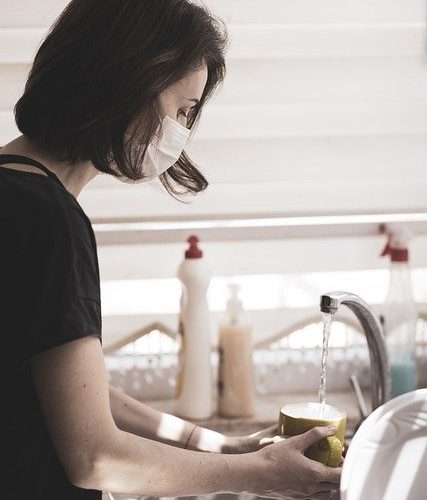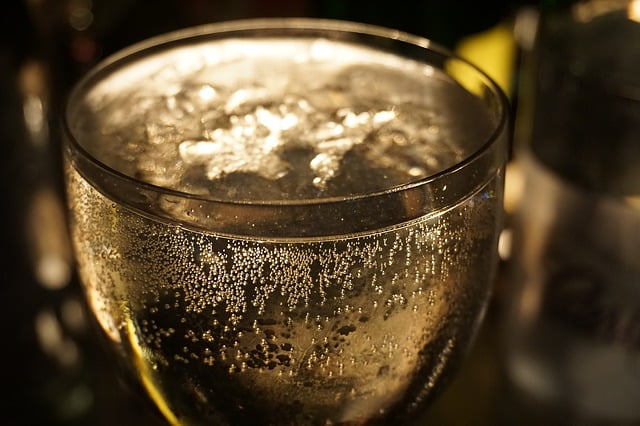- Impact of COVID-19 felt across food & drink sector – soft drinks most severely impacted, cumulative brand value down 6%
- Coca-Cola retains title of world’s most valuable and strongest soft drink brand, brand value US$33.2 billion and elite AAA+ brand strength rating
- Dr Pepper and Red Bull post strong brand value growth, up 40% and 15%, respectively
- Nestlé dominates as most valuable and strongest food brand, as well as boasting most valuable food & drink portfolio, ahead of PepsiCo and The Coca-Cola Company
- In dairy, Yili records impressive 11% brand value growth, widening gap ahead of second-placed Danone
- Lindt is most valuable chocolate brand, following 21% brand value increase
“The COVID-19 pandemic has put a huge amount of pressure on the food & drink industry globally, from disrupted supply chains and panic buying to a complete change in consumer habits. The result of this has led to the majority of brand values suffering this year across the sector. The future is not bleak, however, brands with high levels of familiarity and reputation are likely to bounce back successfully as we begin the return to normality”, says Savio D’Souza, Valuation Director, Brand Finance.
American giant, Coca-Cola, has once again been named the world’s most valuable soft drink brand, despite recording a 13% brand value decline to US$33.2 billion. Coca-Cola maintains a healthy lead over rival Pepsi, sitting in 2nd place with a brand value of US$18.4 billion.
In addition to measuring overall brand value, Brand Finance also determines the relative strength of brands through a balanced scorecard of metrics evaluating marketing investment, stakeholder equity, and business performance. According to these criteria, Coca-Cola is also the world’s strongest soft drink brand – and the 4th strongest brand in the world according to the Brand Finance Global 500 2021 ranking – with a Brand Strength Index (BSI) score of 91.7 out of 100 and a corresponding elite AAA+ brand strength rating.
With a rich 129-year long history, Coca-Cola is still the most consumed soda in the world, with a staggering 1.9 billion servings, across 200 countries, enjoyed each day. As with other brands globally, however, the brand’s parent company has not been immune to the impact of COVID-19, with the multinational forced to restructure and cut over 2000 jobs.
Coca-Cola continues to strive towards its CSR responsibilities, recently announcing its partnership with The Ocean Cleanup’s River Project, where it will utilise its global network to tackle the amount of plastic entering the oceans. This is just the latest prong in the company’s wider vision for a “World Without Waste”.
When looking at the brand portfolios across the food & drink sector, The Coca-Cola Company’s portfolio claims third position with a cumulative brand value of US$48.6 billion. PepsiCo’s portfolio sits in second, with a total brand value of US$59.3 billion.

Dr
Pepper and Red Bull bubble up
Dr Pepper and Red Bull are the fastest and second-fastest growing soft drink brands this year, recording a 40% and 15% brand value increase, respectively.
Entering the top 10, jumping from 11th to 8th this year, is Dr Pepper. Dr Pepper has celebrated increased popularity and sales over the previous several years and demand grew exponentially last year as American consumers took to ‘pantry-loading’ amid the panic-buying phase of the pandemic.
Founded in 1987, Austria’s Red Bull is known for its unique marketing strategy which embraces extreme sports, celebrity endorsements, music, and more – an approach which sets the brand apart when it comes to connecting with consumers. This presence, paired with nearly eight million units sold of the drink in 2020 alone, has enabled the brand to grab the bull by the horns and solidify its third position in the Brand Finance Soft Drinks 50 2021 ranking.
Nestlé dominates food sector
Nestlé (brand value US$19.4 billion; BSI score 86.4 out of 100) once again leads the pack as the world’s most valuable and strongest brand in the Brand Finance Food ranking, which for the first time has been extended to 100 brands.

Despite the pandemic, the food giant has posted its third consecutive year of organic growth, profitability, and return on investment capital. The sheer size, presence, and experience of the company in the sector has allowed it to successfully adapt to the ever-changing and challenging landscape.
According to Brand Finance’s Global Brand Equity Monitor, Nestlé has increased its scores in the consideration metric, as well as improving its score for the community and environment metrics under the CSR measurement. With a continued focus on product innovation and R&D, Nestlé is spearheading changes to reflect the current consumer trends, from its product Smarties becoming the first major global confectionary brand to switch to recyclable paper packing, to announcing the launch of a vegan KitKat.
The Nestlé portfolio is also the most valuable food & drink portfolio, with a total brand value of US$65.6 billion. Despite the parent company underperforming compared with the previous year, it has been offset by the overperformance of some of its sub brands, particularly in the pet care and non-alcoholic drinks segments.

Y
Despite the pandemic, the food giant has posted its third consecutive year of organic growth, profitability, and return on investment capital. The sheer size, presence, and experience of the company in the sector has allowed it to successfully adapt to the ever-changing and challenging landscape.
According to Brand Finance’s Global Brand Equity Monitor, Nestlé has increased its scores in the consideration metric, as well as improving its score for the community and environment metrics under the CSR measurement. With a continued focus on product innovation and R&D, Nestlé is spearheading changes to reflect the current consumer trends, from its product Smarties becoming the first major global confectionary brand to switch to recyclable paper packing, to announcing the launch of a vegan KitKat.
The Nestlé portfolio is also the most valuable food & drink portfolio, with a total brand value of US$65.6 billion. Despite the parent company underperforming compared with the previous year, it has been offset by the overperformance of some of its sub brands, particularly in the pet care and non-alcoholic drinks segments.

Despite the pandemic turmoil of the previous year, Yili has boasted strong sales growth, up 13% year-on-year, and the long-term forecast for the brand looks positive. The dairy giant has once again been striving towards new products and optimisation, bolstered by innovation and long-standing R&D investment. This, paired with further expansion into new territories across Asia and overseas, has supported the brand’s strong growth.
According to Brand Finance’s Global Brand Equity Monitor, Yili scores very high for consideration compared to its peers. These solid results could be due to the brand’s focus on raising brand awareness, most notably through the sponsorship of the 2008 Beijing Olympics. Fellow Chinese dairy brand, Mengniu (down 10% to US$4.8 billion), has been implementing a similar strategy, previously sponsoring the 2018 FIFA World Cup, and more recently, signing the first-ever joint worldwide ‘TOP’ Partner agreement with the International Olympic Committee together with The Coca-Cola Company, that will continue until the 2032 Olympics.
The Brand Finance Food & Drink 2021 report also includes the Dairy Portfolio ranking – which splits the brand value related to dairy brands from the wider food portfolios – as dairy brands represent a large proportion of the food portfolios’ brand value and often are responsible for movement within the overall ranking.
Yili has the fourth most valuable dairy portfolio, with a total brand value of US$9.6 billion, an impressive performance given that Asian dairy brands have traditionally been outperformed by their international counterparts. Lactalis has overtaken last year’s leader, Nestlé, with a combined brand value of US$11.4 billion.

L
indt hops to the top of the chocolate ranking
A market leader in premium quality chocolate, Lindt, is the world’s most valuable chocolate brand, recording an impressive 21% brand value increase to US$3.1 billion. As with other chocolate brands globally, Lindt’s operations have taken a hit amid global lockdowns, particularly from those that have taken place over Easter and Christmas. That being said, Lindt has outperformed its peers, gaining market share in nearly all of its markets and posting strong results in the premium segments.
Cadbury’s is the only other chocolate brand to record a brand value increase this year, up 5% to US$2.5 billion. Owned by Mondelēz International and sold in over 30 countries – with its top three markets the UK, Australia, and India – Cadbury’s has reaped the benefits of increased spending on its products during the pandemic. Towards the end of 2020, spending on chocolate in the UK soared by £50 million year-on-year as millions comfort ate at home.


